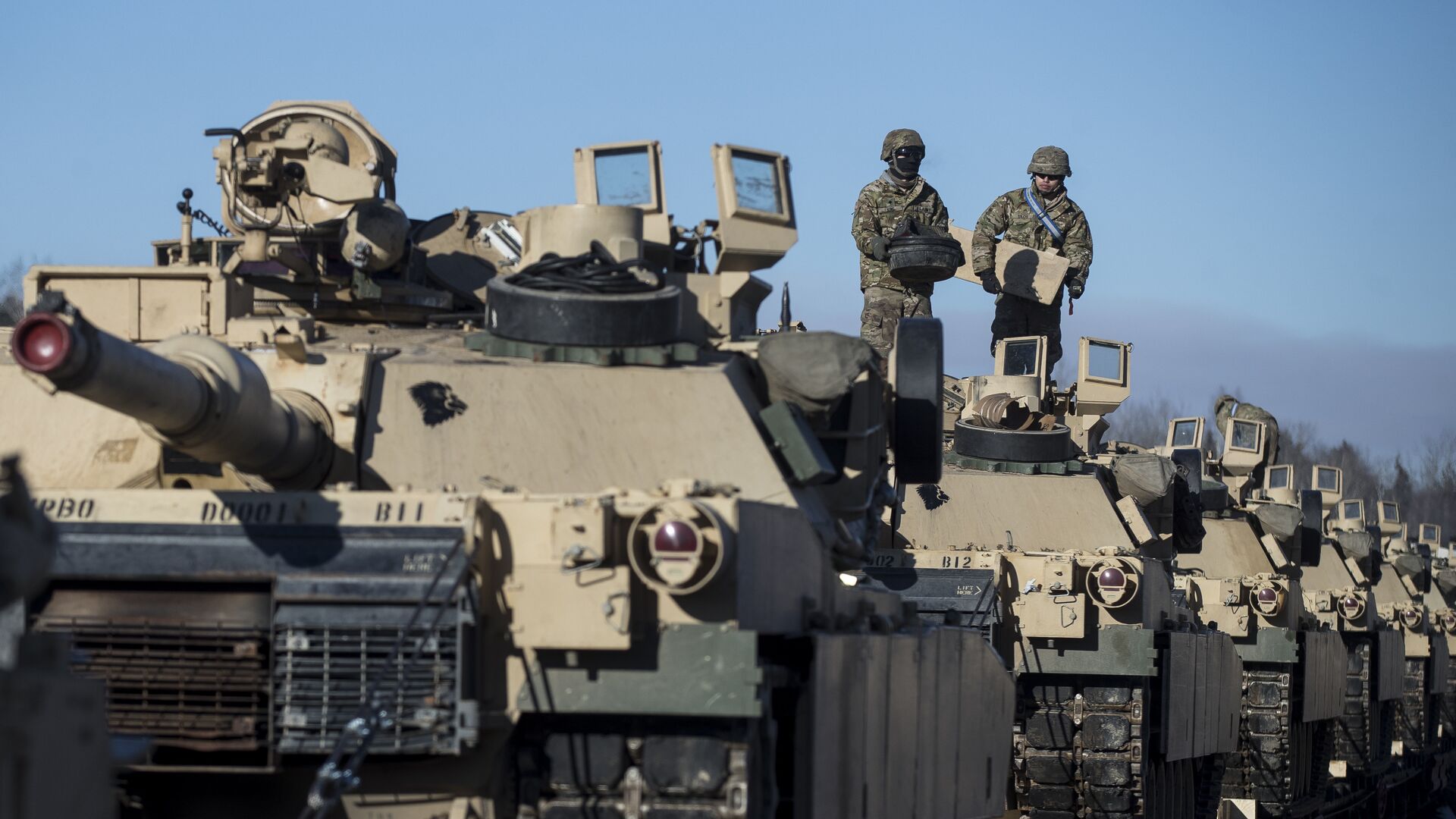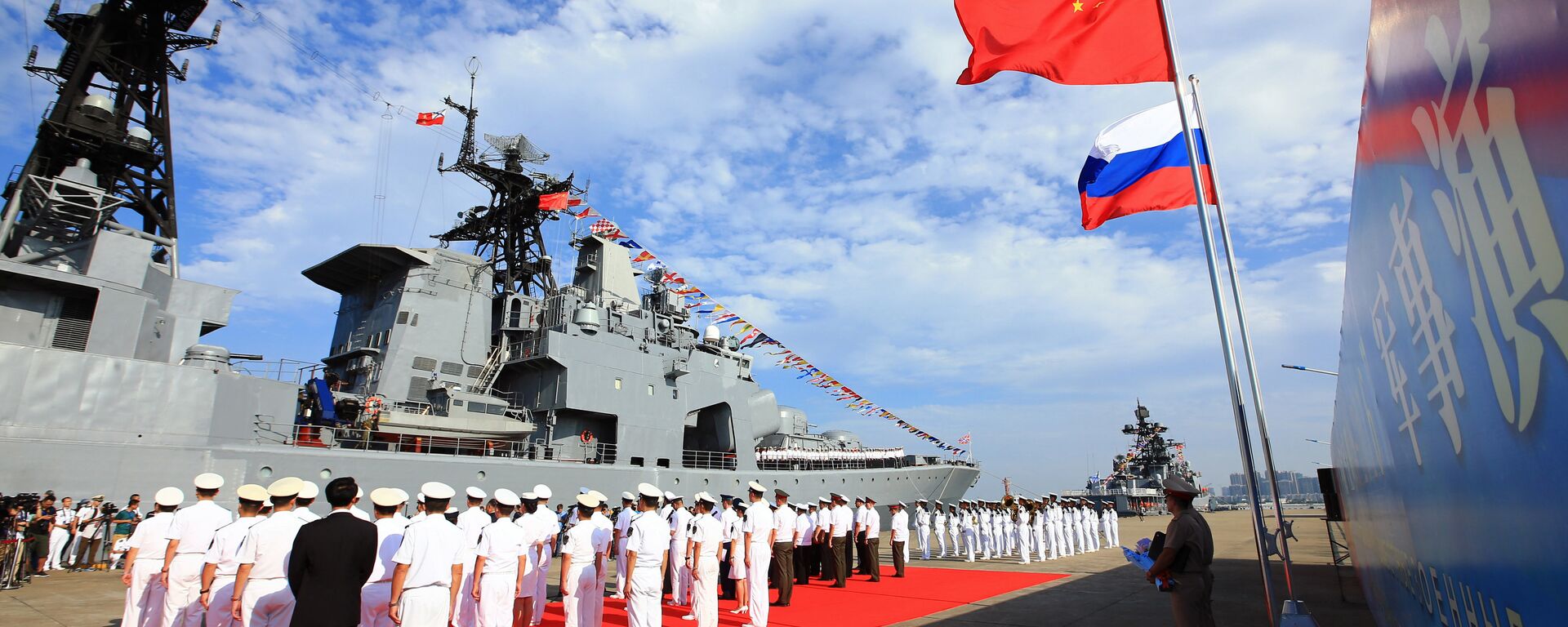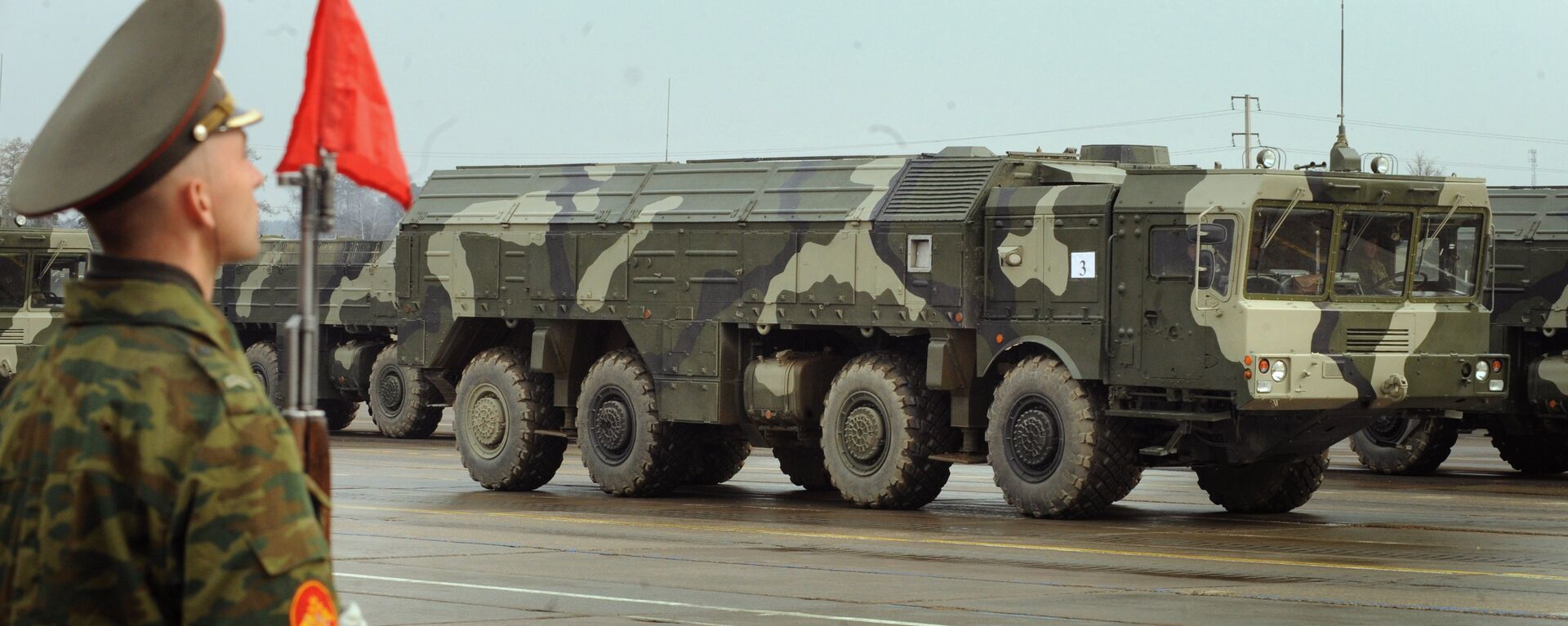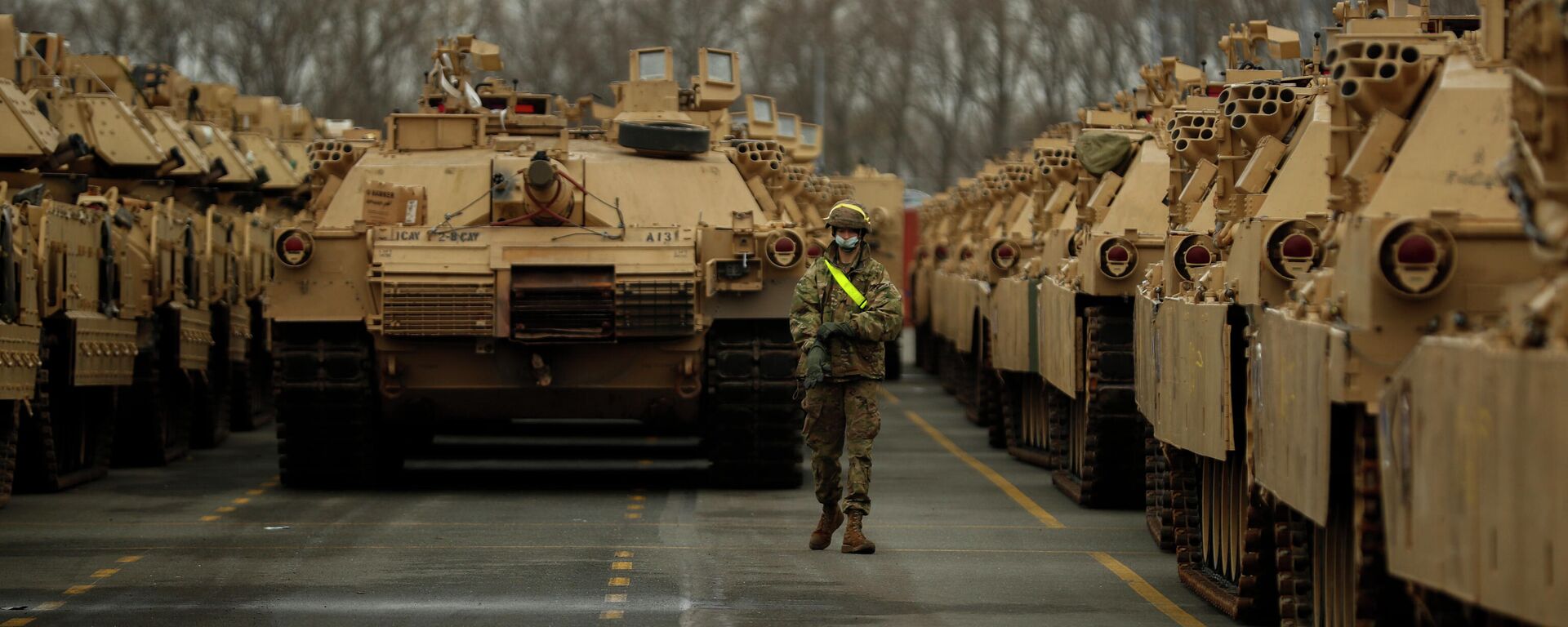What are Major Reasons Behind Washington's Unwillingness to Accept Russia's NATO Proposals?
17:41 GMT 11.01.2022 (Updated: 14:12 GMT 13.01.2022)

© AP Photo / Mindaugas Kulbis
Subscribe
The first round of talks between the US and Russia have not brought any breakthroughs with regard to security guarantees on NATO's non-expansion. Austrian academic Gerhard Mangott and American journalist Daniel Lazare have discussed the initial outcome of the Russo-American security dialogue.
Senior Russian diplomats led by Deputy Foreign Minister Sergei Ryabkov held talks with their American counterparts led by Deputy Secretary of State Wendy Sherman in Geneva on 10 January over two draft security agreements submitted to Washington by Moscow in mid-December 2021.
Ryabkov called the first round of talks "difficult, long, very professional, deep, and specific." However, the parties have not reached a compromise on the key issue of security guaranties requested by Moscow, i.e. NATO's non-expansion and non-admission of Ukraine and other post-Soviet states to the transatlantic alliance. According to Sherman, the US "will not allow anyone to close NATO's open-door policy." She also threatened Russia with "significant costs and consequences, well beyond what they faced in 2014," if Moscow opts to "invade" Ukraine. Ryabkov shredded the "invasion" scenario as groundless.
Three Reasons Behind US' Reluctance
There are several reasons for the US' unwillingness to provide Russia with the security guarantees that Russia is demanding, says Gerhard Mangott, an expert on Russian foreign policy and arms control at the University of Innsbruck and a lecturer at the Diplomatic Academy in Vienna.
"Giving Russians what they want, namely, not expanding NATO anymore, not only to the East but in general, withdrawing soldiers and military infrastructure from the Eastern European NATO countries and an end to the membership promised to Georgia and Ukraine - all these demands that are crucial for the Russian side, the West is not willing to accept, which is understandable from its point of view, because if the West would do so, it would actually lose credibility," says Mangott.
More importantly, if the US and its NATO allies meet Russia's demands with regard to the alliance's non-expansion, "they would lose all the power and influence that it has gained over the past 30 years," the scholar points out.
At the same time, Joe Biden is under pressure from some Democrats and Republicans who insist that the US president's policy towards Russia "should be much harsher and much stricter," according to the expert. In particular, they earlier subjected Biden to harsh criticism for waiving sanctions on the Nord Stream 2 gas pipeline between Russia and Germany.
"So the domestic room for manoeuvring for Biden is, of course, limited with the current crisis," Mangott notes.
However, domestic constraints on Biden are "not the main reason why the United States will not give Russia the security guarantees it's asking for," the scholar notes, suggesting that "the main reasons are the geopolitical interests of the United States, the collective West and NATO."
'Biden's Anti-Russia Sanctions Will Hurt EU More Than US'
Meanwhile, the Biden administration is threatening Russia with new sweeping sanctions over Moscow's alleged plans to "invade" Ukraine. While the EU leadership and Washington have signalled readiness to implement the restrictions, "of course, the United States would be less hurt than the European Union," Mangott admits.
"Depending on what sanctions ultimately will be implemented, the Europeans are more likely to suffer under the new sanctions regime than the United States, given the fact that the EU and the European member states of NATO have a much larger trade volume with Russia than the United States," the Austrian academic underscores.
Previously, the US media suggested that Russia's "unusual" concentration of military forces in its Western regions might have pointed to preparations for an invasion of Ukraine. The Kremlin has repeatedly rejected the "Russia invasion" scenario, stressing that it has the full right to move its troops within its sovereign territory. During his second December phone conversation with Biden, Putin warned his interlocutor that the imposition of further punitive sanctions could disrupt US-Russia relations.
According to the New York Times, a new batch of sanctions discussed by the US leadership with its allies could include expelling Russia out of the SWIFT banking communication system, imposing an embargo on US-made or US-designed technologies for defence-related and consumer industries, and further lethal military aid to Ukraine.
Washington Risks Driving Itself Into a Corner
There is a reason why Biden is placing all his bets on sanctions against Russia even though their deterrence value is nil, says Daniel Lazare, an independent journalist, author, and writer.
"Biden's hoping against hope that if he huffs and puffs enough, then maybe Putin will back down," Lazare says.
According to the journalist, the US president is "desperate" to avoid any military conflict during his tenure "because he knows that the US is ill-prepared and that the American people would not stand for it after two decades of 'forever wars.'"
However, Washington's unwillingness to halt NATO's expansion is fraught with real risks unlike the risk of an alleged Russian "invasion of Ukraine" which Moscow has never planned in the first place.
During his annual presser on 23 December Russian President Vladimir Putin explained the urgency behind Moscow's request of non-expansion guarantees from NATO amid the US and UK-backed militarisation of Ukraine and construction of naval bases in the country.
"We have nowhere to retreat," stressed the Russian president, adding that NATO could deploy missile systems in Ukraine that would take just four or five minutes to reach Moscow. Putin noted that Moscow's decision of what actions to take if NATO proceeds with eastward expansion would "depend on what proposals [Russian] military experts submit to [him]."

20 October 2021, 13:00 GMT
Meanwhile, US military experts are warning the Biden administration against escalating tensions with Russia, as the Pentagon is shifting its focus to the Indo-Pacific to contain the rise of China. Former Assistant Secretary of State for European and Eurasian Affairs A. Wess Mitchell stated in August 2021 that "avoiding a two-front war with China and Russia must rank among the foremost objectives of contemporary US grand strategy."
Edward Geist, a policy researcher at the RAND Corporation, forecast a military defeat for the US should it fight Russia in Europe or China over Taiwan in his June 2021 op-ed for War on the Rocks.
"The US has thus miscalculated badly," says Lazare. "It has painted itself into a corner just as it did in Afghanistan, Iraq, Syria, and Libya and now has no idea what to do. All those geniuses in the Washington foreign-policy establishment are supposed to think ahead, yet America has once again stumbled into a trap of its own making. It's a blunder, and it will be very interesting to see how it plays itself out."



